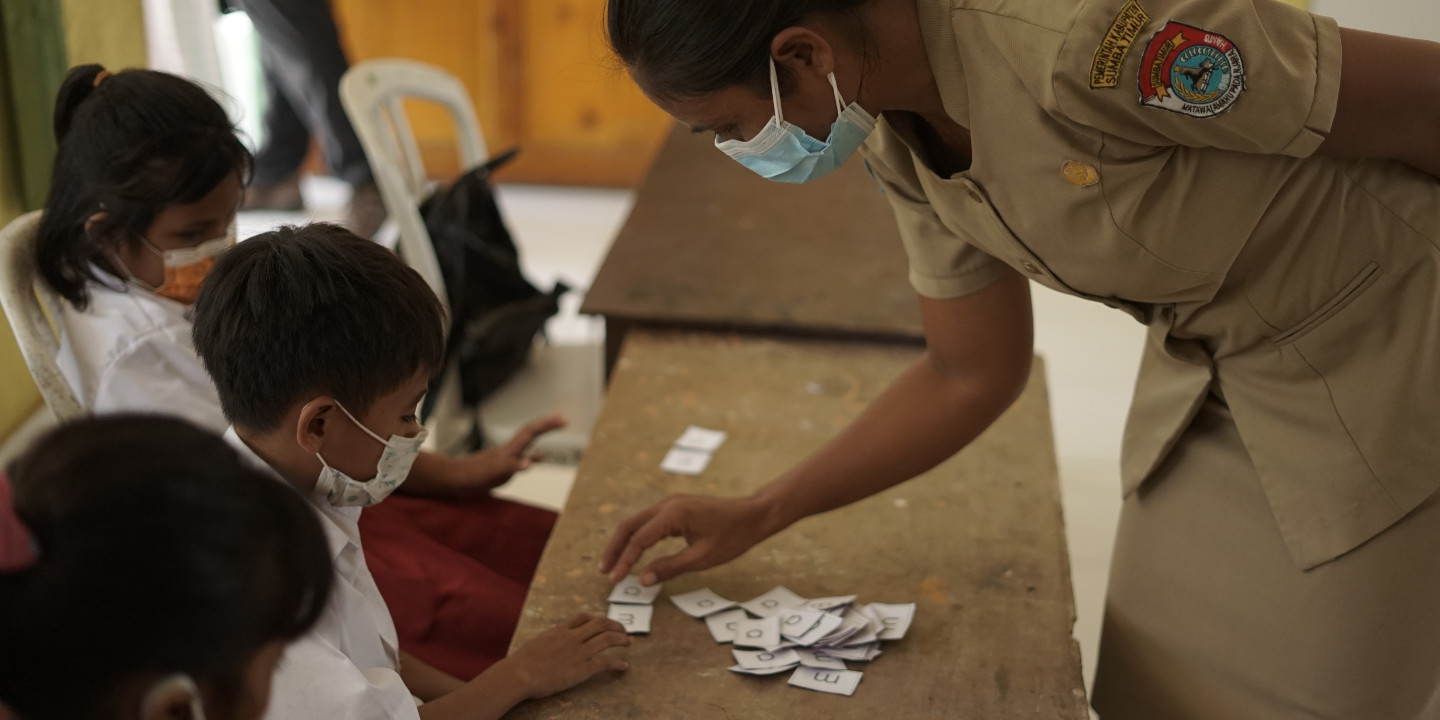
Understanding learning gaps for system transformation
ACER news 1 Aug 2022 6 minute readIn 2021, in a world first, ACER, with the Australian Government-funded INOVASI program and the Indonesian Ministry of Education Culture, Research and Technology, mapped the learning gaps of Indonesian students against international benchmarks. We now have clear directions for students’ learning recovery.
The COVID-19 pandemic has disrupted school education around the globe, and is expected to widen the learning gap, with a disproportionate effect on the world’s most marginalised students. It has also created additional barriers for the achievement of Sustainable Development Goal (SDG) 4 - education for all – when there are only 8 years left to achieve national and global targets.
In 2020, understanding the need to create an evidence base for effective learning recovery in the wake of the pandemic, the Innovation for Indonesia’s School Children Australia Indonesia Partnership (INOVASI) and the Indonesian Ministry of Education, Culture, Research and Technology, with technical support from the Australian Council for Educational Research (ACER), initiated a study to assess potential gaps in Indonesian student learning that would help the ministry better understand the standards set for students and actual student attainment.
Published in 2022, The Learning Gap Series One – Beyond Letters and Numbers: The COVID-19 Pandemic and Foundational Literacy and Numeracy in Indonesia developed descriptions of literacy and numeracy achievement levels, referencing, for the first time, both global proficiency frameworks and Indonesia’s curriculum and assessment standards. The data was collected in mid-2021, after 12 months of school closures, and covered more than 18,000 students in 19 districts across Grades 1-3.
Student results were benchmarked against descriptors of skills for the Global Proficiency Framework Minimum Proficiency Levels (MPLs), revealing that a significant proportion of Indonesian students in Grades 1-3 are below expected learning levels as defined by international standards. Concurrently, the study showed that grade level expectations as defined by the Indonesian curricula are higher than those of the international MPLs.
'Through this study, we discovered, as we have in other low- and middle-income countries, that national curricula are set at levels that do not reflect student ability,' explains Jeaniene Spink, Research Director for Education and Development at ACER.
'We are losing children at the first hurdle, and when addressing learning recovery we need to start where students are at, so they have a realistic chance of catching up. But addressing gaps in learning cannot be achieved through a single point of intervention. Rather, curricula, teaching, and assessment must be interlinked and supported so a full system transformation can occur.'
The study also provided a deeper understanding of student learning outcomes across population groups and revealed significant inequalities in student abilities. Students who attended pre-school consistently outperformed those who did not; students with a physical disability were significantly disadvantaged in their learning performance; students from underdeveloped areas had poor learning outcomes; and schools where teachers had access to a computer performed better, particularly in literacy.
The COVID-19 pandemic is likely to have exacerbated these inequalities, and the study recommends that a more targeted system of support, investing in underserved areas, engaging with communities and families, and identifying the more marginalized students within schools to engage in innovative programs will significantly improve learning outcomes for all students.
'Targeting teaching to the point of student ability requires a systematic approach that defines, measures and understands learning. SDG4 is achievable if we can find solutions that support system transformation, and understanding learning gaps based on international standards is the first step on that journey,' notes Spink.
Further reading
Read the full report, The Learning Gap Series One – Beyond Letters and Numbers: The COVID-19 Pandemic and Foundational Literacy and Numeracy in Indonesia
Learn more about ACER's work to improve education in low- and middle-income countries
